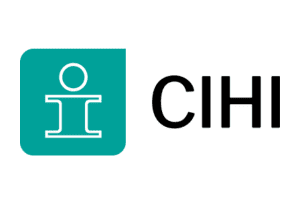A patient story

If you want to talk about health care in meaningful way, have a patient tell their story.
While this has become almost a truism in the medical conferencing world, the Canadian Medical Association (CMA) was still savvy enough to do exactly this when they asked Angus Pratt, a member of their Patient Voice advisory group to speak at the CMA Health Summit 2025.
During a session of rapid-fire presentations on new technologies, Pratt discussed his own personal journey and the potential impact of precision medicine.
Here is his opening:
“I’d like you to imagine for a second that you’re sitting in an exam room, one of those cold, white, sterile exam rooms. The silence is absolutely deafening. You hear a knock on the door, and in walks that white coated oncologist, and he looks at you and he says, “Mr. Pratt, I have some bad news for you. Your lung cancer is stage 3c. … He went to a white board, and drew a set of lungs and he showed me where the various tumors were. Then he wrote the number 5% next to it and he turned to me and said “That’s the number of lung cancer patients with your stage that make it to five years.” You think he could have done that a little bit more gently, but it is what it is. Here’s the crazy part. I was diagnosed in 2018 and here I stand in 2025.”
Pratt then went on to address precision medicine and biomarkers noting that “they have finally discovered that giving every cancer patient the same chemo treatment is sort of like giving everybody the same haircut. It doesn’t work.” Using biomarkers, he said, clinicians now have the capacity to determine exactly what time of gene mutation a cancer patient has, and tailor treatment to that.
“The dream is that every single cancer patient have access to biomarker testing right now.”
Pratt noted the availability of this testing currently varies widely by jurisdiction and that the drugs used in treatment are very expensive. “They’re so expensive they should come with their own private jet,” Pratt said.
After discussing his treatment journey and his success in getting treated with the appropriate drug, Pratt added: “What I want to say is that in Canada, it takes about two years longer than it does in the US to get those drugs approved. That’s two years of watching Americans getting better drugs, and we sit here waiting for the leftovers.”
“We need to stop playing catch up and start building a system that actually works with precision medicine, because the future of health care isn’t just about better medicine. It’s about making sure that the people who need it can actually get it. Otherwise, we’re just writing 5% make it to 5 years on the whiteboard and hoping for the best.”
End of story.
Reposted with permission from author Pat Rich. Learn more about the Patient Voice at e-Health25 here.




